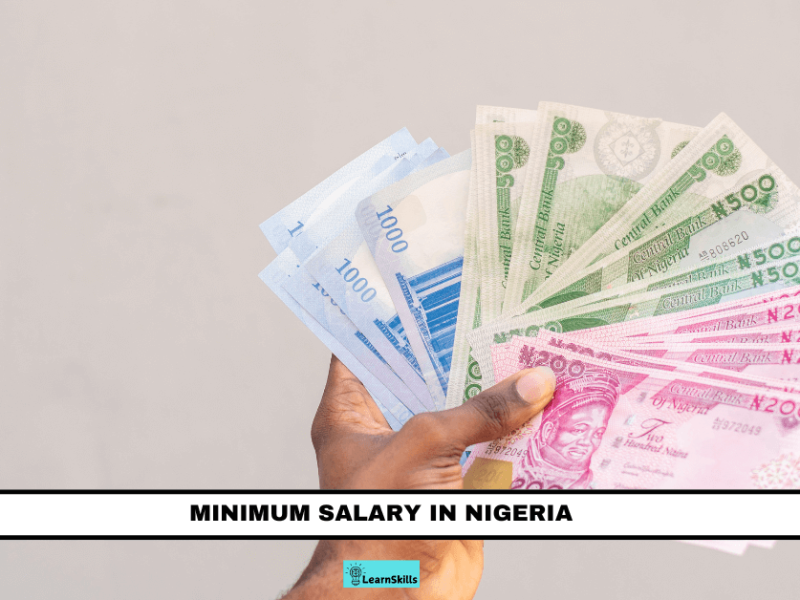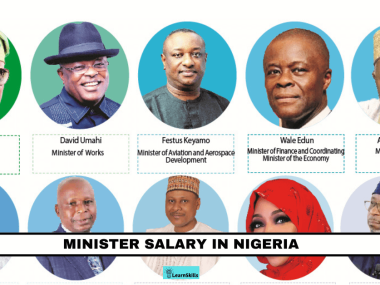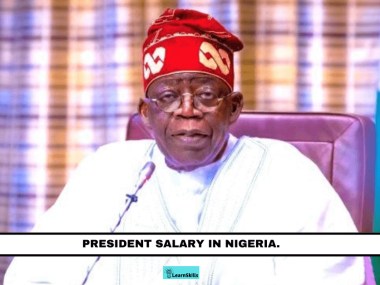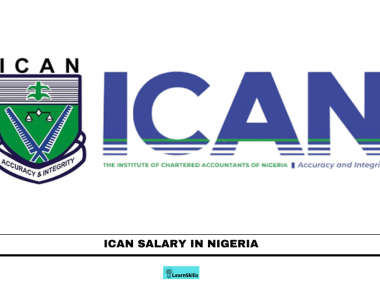The minimum salary in Nigeria is #70,000 naira monthly, which is approximately 44 U.S. dollars. This wage has not changed since 2024, despite rising costs of living and workers’ demands for higher pay.
Currently, the minimum wage affects millions of federal workers and sets a standard for various industries across the country. While it may seem low, it reflects the economic challenges that many face in Nigeria today.
As you read, you’ll find insights into the realities of earning a minimum wage in Nigeria. You’ll discover how it compares to wages in other countries and what it means for living conditions.
Overview of the Minimum Wage in Nigeria
The minimum wage in Nigeria has evolved significantly over the years, reflecting both economic conditions and labor demands. Understanding its historical context and how it compares to other countries provides insight into the challenges and progress made.
Historical Perspective
The minimum wage in Nigeria has undergone several adjustments since its introduction. It was N7,500 in 1981, it experienced gradual increases over the decades. In 2011, it increased to N18,000 which remained unchanged for years. In 2024, the wage was increased to N70,000.
The increase depicts a response to rising costs of living. The government faced pressure from labor unions demanding higher wages to match inflation and economic changes.
The current wage of N70,000 is approximately $44, highlighting the struggle of workers to meet basic needs.
Comparison to Other Countries
Nigeria’s minimum wage is lower to other nations. In 2025, the minimum wage in Nigeria is significantly below that in many African countries.
Countries like South Africa have a minimum wage of around $23 hourly, while Nigeria’s minimum translates to less than $1.50 daily.
Nigeria’s current minimum wage is seen as insufficient for workers to cope with daily living expenses, leading to ongoing discussions about further increases. The gap between wages and essential costs remains a pressing issue for Nigerian workers.
Recent Developments
Recent changes in Nigeria’s minimum wage policies reflect significant economic decisions and plans. These updates focus on wage increase proposals and new policies introduced under the current leadership.
Minimum Wage Increase Proposals
In late 2024, the Nigerian government increased the minimum wage from ₦30,000 to ₦70,000. This change marked a 133.3% rise, addressing the need for workers to cope with inflation and rising living costs.
Many state governments now adopt this wage level, although compliance varies. Discussions around further proposals are ongoing.
As of now, the minimum wage is a crucial topic among workers and unions who advocate for better pay. The aim is to ensure that wages keep up with inflation and improve workers’ standards of living.
Policy Changes Under President Bola Tinubu
President Bola Tinubu’s administration has introduced significant policies regarding wages. The increase in minimum wage aligns with his focus on economic recovery. By raising wages, the government aims to boost consumer spending and stimulate growth.
Alongside this wage increase, Tinubu’s government is reviewing other employment policies. These include labor laws to enhance worker protections and ensure fair compensation. His approach is geared toward fostering a more stable economy.
Furthermore, discussions are underway to consider regional wage differences and local economic conditions.
Economic Impact
The increase in the minimum salary in Nigeria affects the economy in various ways. This includes changes in the cost of living and the relationship between wage levels and inflation.
Effect on Cost of Living
With the new minimum wage of N70,000, employees can expect a better standard of living. This increase aims to help cover rising costs such as food, housing, and transportation.
As salaries increase, spending power improves, which can lead to better health, education, and well-being.
However, a higher minimum wage may also lead to increased prices for goods and services. Businesses may raise prices to maintain profit margins. This could affect the affordability of everyday items for consumers.
Inflation and Wage Correlation
The correlation between wages and inflation is critical to understanding economic dynamics. When wages rise, it often results in increased consumer spending. This demand can drive prices up, contributing to inflation.
Inflation in Nigeria has been a concern, influenced by various factors, such as the value-added tax (VAT) and global economic conditions.
Stakeholder Perspectives
In Nigeria, various stakeholders have strong views on the issue of minimum salary. Their perspectives help shape the discussions surrounding wage policies and the economic landscape.
Government and Governors’ Stance
The federal government plays a critical role in determining minimum wage rates. Recently, it raised the minimum wage from ₦30,000 to ₦70,000.
Some governors support this change, believing it aids economic growth and motivates workers. However, others, argue that even the new wage is unrealistic given the rising cost of living. They express concerns about the financial burden on states, especially those with fewer resources.
The government frequently engages with state governors to balance various economic interests and ensure consensus.
Nigeria Labour Congress and Civil Servants’ Outlook
The Nigeria Labour Congress (NLC) represents civil servants and workers’ rights. Labor leaders advocate for higher wages to reflect living costs. They argue that fair compensation is essential for worker motivation and productivity.
The NLC also supports regular wage reviews to adapt to inflation and economic changes. Workers often feel underpaid, especially in sectors with high demands.
The NLC’s role is crucial in negotiating with the government to secure a more equitable salary structure. This ongoing dialogue is vital for improving the living conditions of millions of Nigerian workers.
Challenges and Controversies
The increase in Nigeria’s minimum wage has led to various challenges and controversies. These issues mainly arise from strikes, labor unrest, and difficulties in implementing the wage across different states.
Strikes and Labour Unrest
The Nigeria Labour Congress (NLC) often leads strikes demanding better wages and working conditions. Workers organize protests when they feel their needs are not met. In some cases, these strikes disrupt businesses and public services.
The Trade Union Congress also plays a role in these movements, representing many workers. Strikes can lead to significant economic losses and push the government to take quick actions or negotiate terms.
Workers also demand accountability stating that funds allocated for wages are not lost to corruption.
When negotiations fail, unrest can escalate, affecting not just workers but entire communities. The focus remains on ensuring fair pay and proper administration of the new wage.
Challenges in Implementation Across States
Implementing the new minimum wage varies greatly across Nigeria’s states. For instance, Bayelsa State faces issues related to funding and corruption that make the payment of the new wage difficult.
Other states, too, struggle with ghost workers and phantom contracts that drain resources meant for real employees.
Local governments often lack the finances needed to support higher wages. As a result, many workers still earn less than the set minimum.
The inconsistency leads to frustration among workers and mistrust in the system. Some states are slower to comply due to these financial burdens, affecting overall wage growth across the country.
Addressing these hurdles is crucial for the success of the new wage structure and the welfare of all workers in Nigeria.










